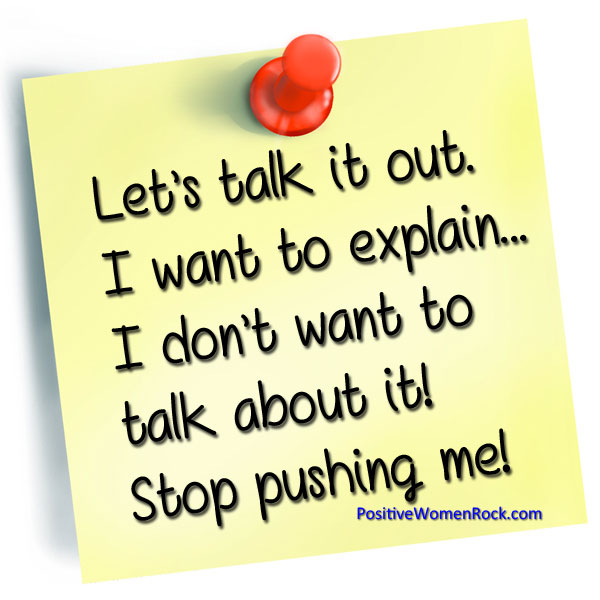Conflicts are normal, but different communication styles can make fights worse!
In families, friendships, and relationships of every sort, disagreements and conflicts are bound to occur (even when those relationships are healthy). The workplace and family environments in particular can be hotbeds for strife as power dynamics in those spaces often position others to make choices that affect you without your input. Although well-handled conflict can teach us a lot (how to gain a new perspective or boundaries about what we’d like to avoid), how well someone manages the rift in the moment (by talking it through or refusing to talk at all) has serious ramifications for all involved.
As a life coach, I often hear stories of people struggling to relate with loved ones, co-workers, etc. — anyone who communicates differently than they do. My first step to help clients keep their valued relationships healthy is providing them with this basic breakdown about how each person in the conflict might perceive things:
The Talk-It-Out Person:
Are you a talk-it-out person? If so, you may feel the need to clear the air or maybe to apologize or perhaps you simply want to feel heard and acknowledged. To you, stuffing feelings is a recipe for disaster and you know a healthy conversation can create an even stronger bond. It’s highly frustrating to want to communicate with someone who completely shuts you out and opts for the silent treatment rather than a respectful discussion.
You may wonder what you did wrong or why the other person is being so “mean” about it. When someone like you is given the silent treatment, even small conflicts can escalate because while the other person isn’t having a conversation about the problem, your brain is! Your mind torments you, creating possible scenarios that assume what the other person must be thinking or what you did wrong to make them clam-up. You may talk to friends about the situation to get their opinion (because you genuinely need to talk to someone). And whether your friend agrees with you or not, the conflict grows bigger simply because of the thoughts and emotional energy swirling around inside you without resolution.
You probably feel hurt or disregarded. You may fear the negative impact the conflict will have on your relationship as a whole. After all, how can you keep your family or relationship happy if… continue reading at YourTango.com



Share your thoughts...